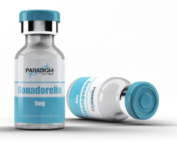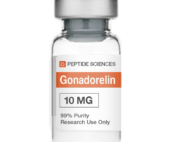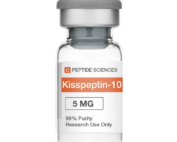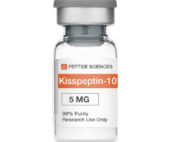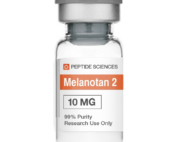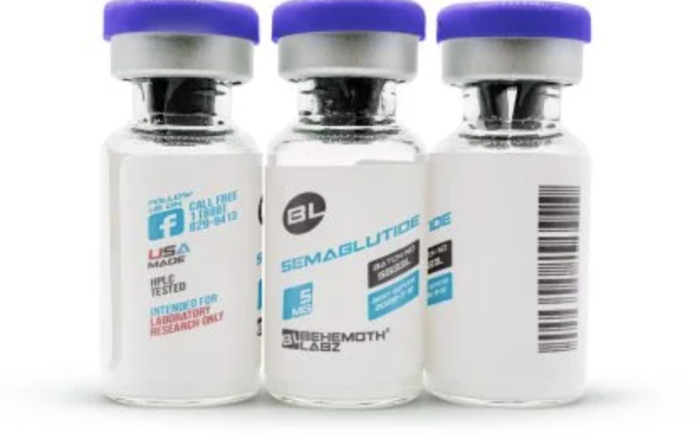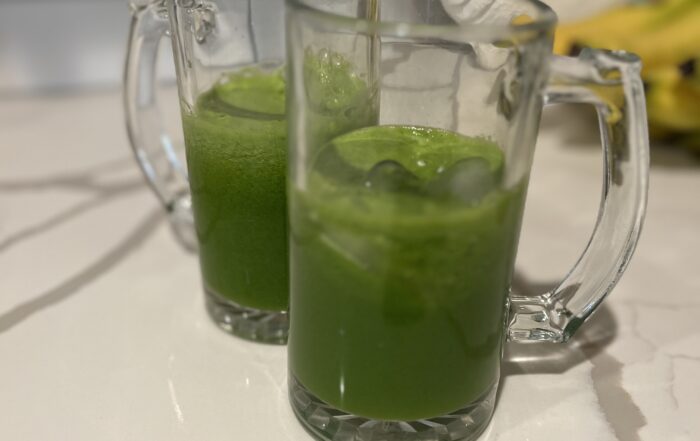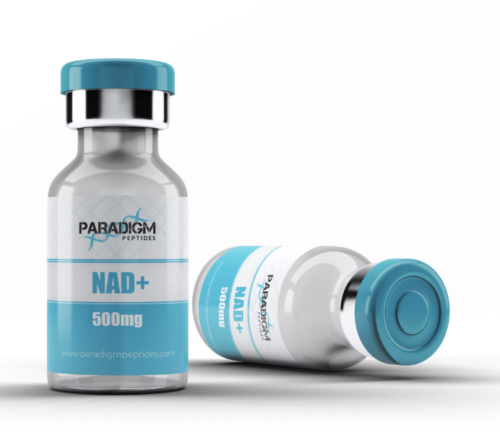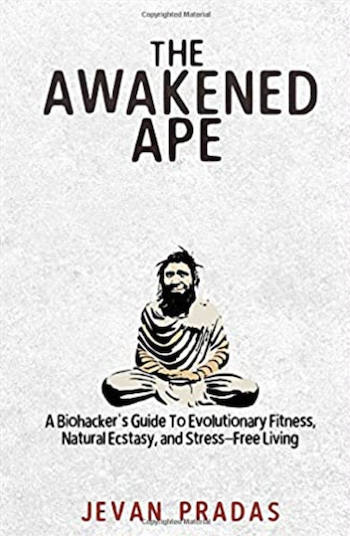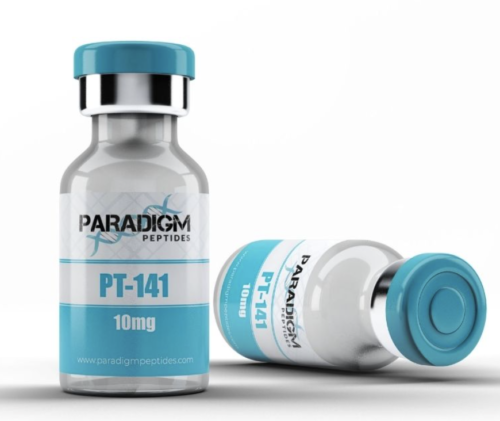Understanding Erectile Dysfunction
From a western biomedical perspective, erectile dysfunction (ED) has three main types of causes:
- Psychological – especially likely with history of trauma, in younger men, and if men still have normal morning erections.
- Vascular – circulation and health of the veins and arteries.
- Neurological – damage to the penis nerves, or a reduced ability of nervous stimulus to result in relaxation of smooth muscular tissue and nitric oxide perfusion.
It is significant to remember that ED frequently results from another, more severe ailment.
Untreated disorders such diabetes, hypertension, arterial lesions, cardiovascular disease, and atherosclerosis can harm the body in general and result in ED. You should definitely visit your doctor if you are having ED to make sure nothing serious or life-threatening is going on in the background, especially if you are a younger man.
The Holistic Perspective
The Role of Blood Circulation
Blood flow changes during an erection in two ways: the veins constrict, lowering the amount of blood leaving the penis, and the smooth muscles of the arteries widen, increasing the amount of blood flowing into the penis.
Proper circulation and erection are all hampered by high blood pressure, viscosity of the blood, and the accumulation of plaque or lesions in the pelvic arteries.
Signs of poor circulation as a cause of ED:
- Cold hands and feet
- Blotchy red-white skin on hands, feet, face
- Tingling of limbs
- Smoking
- Easy bruising
- heart palpitations or irregular heartbeat
The Role of the Nervous System
Yang deficiency is one of the main reasons of ED according to Chinese medicine. This roughly equates to the nervous-adrenal axis being worn out and weak. The alterations in circulation required for an erection are not triggered by sexual or sensual stimulus when the nervous system is fatigued because it is less receptive.
Overwork, adrenal exhaustion, excessive stimulant usage (coffee, nicotine, amphetamines), and post-illness rehabilitation can all result in this “Yang deficiency,” which can also be caused by a lack of yin energy. The brain’s response to stimuli can start to change as a result of excessive sexual activity, particularly masturbating to intense pornography or becoming addicted to powerful sexual encounters. In the end, this means that an individual requires greater and stronger stimuli in order to experience a normal degree of arousal.
Using herbs that gradually repair and rebalance nervous function will have positive effects on your lifelong health, regardless of the reason of this neurological weariness.
Below are some tips, tricks, and information to get you back into the game
Saw Palmetto: It will reduce overexcitement brought on by weariness and boost sexual power in those who have worried about their sexual prowess or capacity. It helps people who have reduced sexual drive, enlarged prostates, fatigue, or emaciation.
Damiana: a well-known herb from the Aztecs that is used to boost desire and fertility in both men and women. The best sign is when fatigue, anxiety, and a bad mood all coexist. Moreover, it helps with constipation and delayed digestion.
Milky Oat Seed: It is excellent for replenishing a worn-out nerve system and will enhance the effects of herbs with a stronger sexual focus, such as Damiana, Tribulus, or Saw Palmetto.
Ginkgo: Ginkgo’s usage in ED is strongly supported by clinical research. It is quite effective at reversing the effects of poor circulation on erectile function by thinned the blood and increasing peripheral circulation. Also, it promotes normal brain function.
Cinnamon: The best circulatory stimulant is cinnamon! It is important to seek medical attention when poor circulation is accompanied by cold feelings. It helps control blood sugar and metabolism, which is helpful for obesity and diabetes.
Hawthorn: One of the greatest herbs for promoting a healthy cardiovascular system is hawthorn. The best indication is when ED is being caused by poor heart health.
Sleep plays an important role in maintaining overall health and well-being, including sexual health. Here are some ways in which sleep can help with sexual health:
- Increased energy: Getting enough sleep can help boost your energy levels, which may lead to increased sexual desire and activity.
- Hormone regulation: Sleep is crucial for the regulation of hormones such as testosterone, estrogen, and progesterone, which are important for sexual health. Sleep deprivation can disrupt the balance of these hormones, which may lead to decreased sexual desire.
- Improved mood: Lack of sleep can lead to irritability, anxiety, and depression, which can negatively impact sexual health. On the other hand, getting enough sleep can improve mood and reduce stress, which may enhance sexual function.
- Better physical performance: Sleep is important for muscle repair and recovery, which may improve physical performance during sexual activity.
- Improved cardiovascular health: Sleep is crucial for maintaining cardiovascular health, which is essential for sexual health. Poor cardiovascular health can lead to erectile dysfunction in men and decreased sexual function in women.
In summary, sleep is important for maintaining overall health and well-being, including sexual health. Getting enough sleep can improve energy levels, hormone regulation, mood, physical performance, and cardiovascular health, all of which can positively impact sexual health.
Drink water – dehydration makes the blood thicker and circulation worse
Our mind and sexual reaction are closely related. Some even claim that rather than our genitals, our mind serves as our major erogenous zone. Our ability to perform and enjoy ourselves sexually might be negatively impacted by both sexual and mental trauma. Erections may be negatively impacted by unresolved concerns with shame, desirability, and self-worth.
The majority of men who experience ED (particularly younger men) also experience sexual shame, anxiety, or sadness, regardless of whether psycho-emotional issues are what cause it.
Smoking can have a negative impact on erectile function and increase the risk of erectile dysfunction (ED). Erectile dysfunction is the inability to achieve or maintain an erection firm enough for sexual activity.
Smoking affects erectile function in several ways:
- Reduced blood flow: Smoking damages the lining of blood vessels and reduces blood flow to the penis. This can lead to difficulty in achieving or maintaining an erection.
- Nerve damage: Smoking can also damage the nerves that control erections, which can result in reduced sexual function.
- Hormonal changes: Smoking can disrupt hormone production, including testosterone, which is important for sexual function.
- Psychological factors: Smoking can also contribute to psychological factors such as stress, anxiety, and depression, which can negatively affect sexual function.
Studies have shown that smokers are at a higher risk of developing ED compared to non-smokers. The risk of ED increases with the number of cigarettes smoked per day and the duration of smoking.
Quitting smoking can help improve erectile function and reduce the risk of ED. Studies have shown that men who quit smoking experience improvements in their erectile function within months of quitting. In addition, quitting smoking can also improve overall health and reduce the risk of other health problems, such as cardiovascular disease and cancer.
Studies show that it’s a potent aphrodisiac.
In one study, 1.5g, 3g, or placebo tablets were given daily to 57 men. Both maca groups’ participants reported increased sexual desire.
Three grams of maca per day counteracts the reduction in libido caused by antidepressant use, according to research on both men and women. Maca can treat mild erectile dysfunction in males by improving sperm motility and count.
Use only cooked, gelatinized maca. The raw form is difficult for you to absorb and offers fewer advantages. Add 3g to your morning coffee each day, or take an extract.
Exercise can have a positive impact on sexual health in men in several ways:
- Improved blood flow: Regular exercise can improve blood flow to the penis, which can help improve erectile function.
- Hormone regulation: Exercise can help regulate hormones such as testosterone, which is important for sexual function.
- Improved cardiovascular health: Regular exercise can help improve cardiovascular health, which is important for sexual function. Poor cardiovascular health can lead to erectile dysfunction and other sexual problems.
- Reduced stress and anxiety: Exercise can help reduce stress and anxiety, which can negatively impact sexual function.
- Increased self-confidence: Regular exercise can help improve body image and increase self-confidence, which can positively impact sexual function.
- Weight management: Exercise can help manage weight and reduce the risk of obesity, which is a risk factor for erectile dysfunction.
Studies have shown that men who exercise regularly have a lower risk of erectile dysfunction and other sexual problems compared to men who are sedentary. Exercise can also improve overall health and reduce the risk of other health problems, such as diabetes, high blood pressure, and cardiovascular disease.
It’s important to note that excessive exercise or overtraining can have negative effects on sexual function. It’s recommended to engage in moderate exercise that is appropriate for your fitness level and health status. As always, it’s important to consult with a healthcare professional before starting an exercise program.
Diet can have a significant impact on sexual health. A healthy diet can improve sexual function, while an unhealthy diet can negatively impact sexual health. Here are some ways in which diet can affect sexual health:
- Cardiovascular health: A healthy diet that is low in saturated and trans fats and high in fruits, vegetables, and whole grains can help maintain cardiovascular health, which is important for sexual function. Poor cardiovascular health can lead to erectile dysfunction and other sexual problems.
- Hormone regulation: Certain foods can help regulate hormones such as testosterone, which is important for sexual function. For example, foods high in zinc, such as oysters, can help increase testosterone levels.
- Blood sugar control: A diet that is high in refined carbohydrates and sugar can lead to insulin resistance, which can negatively impact sexual function. Maintaining stable blood sugar levels through a healthy diet can help prevent insulin resistance and improve sexual function.
- Weight management: Maintaining a healthy weight through a healthy diet can help reduce the risk of obesity, which is a risk factor for erectile dysfunction and other sexual problems.
- Nutrient deficiencies: Certain nutrient deficiencies, such as zinc and vitamin B12 deficiencies, can negatively impact sexual function. A healthy diet that is rich in nutrients can help prevent these deficiencies and improve sexual function.
It’s important to note that certain foods and supplements that claim to improve sexual function may not be effective and may even be harmful. It’s important to consult with a healthcare professional before taking any supplements or making significant changes to your diet. A balanced and healthy diet that is rich in fruits, vegetables, whole grains, lean protein, and healthy fats can help maintain overall health and improve sexual function.
Alcohol can have a negative impact on sexual health in men in several ways:
- Erectile dysfunction (ED): Alcohol can interfere with the blood flow to the penis, which can lead to difficulty in achieving or maintaining an erection, also known as erectile dysfunction (ED).
- Hormonal changes: Alcohol can disrupt the production of hormones, such as testosterone, which is important for sexual function.
- Reduced libido: Alcohol can reduce sexual desire, which can negatively impact sexual function.
- Delayed or inhibited orgasm: Alcohol can delay or inhibit orgasm, which can negatively impact sexual satisfaction.
- Performance anxiety: Excessive drinking can lead to performance anxiety, which can negatively impact sexual function.
- Decreased sperm quality: Alcohol can decrease sperm quality and quantity, which can negatively impact fertility.
It’s important to note that moderate alcohol consumption (up to one drink per day for men) is generally considered safe and may have some health benefits. However, excessive alcohol consumption can have negative effects on sexual health and overall health.
Reducing alcohol consumption or quitting alcohol altogether can help improve sexual health and overall health. It’s also important to seek professional help if you’re struggling with alcohol addiction or dependence.
The botulinum toxin type A, sometimes known as botox, is injected into the penis. The penis’ smooth muscles are paralyzed by the toxin, which ultimately increases blood flow.
It would be a four to five times a year treatment rather than popping a tablet whenever you desire sex because the effects last for a number of months.
Nitroglycerin gel is a topical medication that is used to treat erectile dysfunction (ED). Nitroglycerin is a vasodilator, which means it relaxes the blood vessels and increases blood flow to the penis, leading to an erection.
When applied to the penis, nitroglycerin gel is absorbed through the skin and into the bloodstream, where it dilates the blood vessels in the penis. This increased blood flow can help men with ED achieve and maintain an erection.
Nitroglycerin gel is usually prescribed for men with ED who have not responded to other treatments, such as oral medications or penile injections. It is also sometimes used in combination with other ED treatments to enhance their effectiveness.
It’s important to note that nitroglycerin gel can have side effects, such as headache, dizziness, and low blood pressure. It can also interact with other medications, such as erectile dysfunction medications like sildenafil (Viagra), tadalafil (Cialis), and vardenafil (Levitra), and should not be used by men who take medication for angina or have a history of heart disease.
Nitroglycerin gel should only be used under the supervision of a healthcare professional, who can monitor for side effects and ensure that it is used safely and appropriately.
Stem cell therapy is a promising approach for the treatment of erectile dysfunction (ED). This therapy involves using stem cells to repair and regenerate damaged tissue in the penis.
Stem cells are undifferentiated cells that have the ability to differentiate into various types of cells in the body. Stem cells can be obtained from a variety of sources, including bone marrow, adipose tissue, and umbilical cord blood.
In stem cell therapy for ED, stem cells are injected into the penis to stimulate the growth of new blood vessels and improve blood flow. The stem cells also release growth factors that help repair damaged tissue in the penis.
Studies have shown that stem cell therapy can improve erectile function in men with ED. In a small study, men who received stem cell therapy for ED had improved erectile function, with some men achieving normal erections. Another study found that stem cell therapy was effective in men with severe ED who did not respond to other treatments.
Stem cell therapy is still considered experimental, and more research is needed to determine the safety and effectiveness of this treatment for ED. However, early results are promising, and stem cell therapy may become a viable option for men with ED who do not respond to other treatments. It’s important to consult with a healthcare professional to determine if stem cell therapy is appropriate for you.
Intra-Cavernous Pharmacotherapy (ICP) is a treatment option for erectile dysfunction (ED) that involves injecting medication directly into the penis. The medication used in ICP is usually a vasodilator, which means it relaxes the blood vessels in the penis, allowing for increased blood flow and an erection.
During ICP, a very small needle is used to inject the medication directly into the side of the penis. The medication typically takes effect within 10 to 20 minutes, and the resulting erection can last for up to an hour.
ICP is usually recommended for men with ED who have not responded to other treatments, such as oral medications or vacuum erection devices. It may also be recommended for men who are not good candidates for other treatments due to medical conditions or other factors.
The medication used in ICP can have side effects, such as pain or bruising at the injection site, prolonged erection (priapism), and in rare cases, penile scarring. It’s important to use ICP under the supervision of a healthcare professional who can monitor for side effects and ensure that it is used safely and appropriately.
Overall, ICP is considered an effective and safe treatment option for ED, with a success rate of over 70%. However, it is not suitable for all men with ED and should be used in consultation with a healthcare professional.
Testosterone is a male hormone that plays a key role in sexual function. In men, testosterone is produced by the testicles and is important for the development and maintenance of sexual organs, as well as the production of sperm. Testosterone also plays a role in sexual desire, arousal, and performance.
Low levels of testosterone can contribute to erectile dysfunction (ED) by reducing sexual desire and impairing the ability to achieve or maintain an erection. Testosterone replacement therapy (TRT) can help improve ED in men with low testosterone levels.
TRT involves administering testosterone to men with low testosterone levels, usually through injections, patches, gels, or pellets implanted under the skin. TRT can improve sexual desire, arousal, and performance, as well as increase the frequency and duration of erections.
However, it’s important to note that TRT is not a cure for ED and may not be effective for all men with ED. TRT can have side effects, such as acne, breast enlargement, and prostate enlargement, and can increase the risk of blood clots and heart disease in some men.
TRT should only be used under the supervision of a healthcare professional who can monitor for side effects and ensure that it is used safely and appropriately. TRT is not recommended for men with normal testosterone levels or those with a history of prostate or breast cancer.
Key Herbs:
Several herbs have been traditionally used to help with erectile dysfunction (ED). While scientific evidence for their effectiveness is limited and their safety has not been fully established, some of the most commonly used herbs for ED include:
- Panax ginseng: Also known as Asian ginseng, this herb has been shown in some studies to improve ED by increasing nitric oxide production, which helps to relax the blood vessels in the penis and increase blood flow.
- Yohimbine: Derived from the bark of the yohimbe tree, yohimbine has been shown in some studies to improve ED by increasing blood flow to the penis and improving nerve function.
- Horny goat weed: Also known as epimedium, this herb has been used in traditional Chinese medicine to improve sexual function. It may work by increasing nitric oxide production and improving blood flow to the penis.
- Tribulus terrestris: This herb has been traditionally used to improve sexual function and increase testosterone levels. While evidence for its effectiveness in improving ED is limited, some studies have suggested that it may help to improve sexual desire and satisfaction.
It’s important to note that herbs can have side effects and can interact with other medications. If you are considering using herbs to improve ED, it’s important to talk to a healthcare professional to ensure that they are safe for you to use and that they will not interact with any medications you are taking. Additionally, it’s important to follow dosage instructions carefully and to only use herbs from reputable sources.
Lifestyle Hacks:
- losing weight can support healthy hormonal balance
- reduce consumption of high-estrogen foods such as non-organic eggs, dairy and chicken; soy products
- reduce the use of plastic food wrappers or water bottles. Soft plastics leach a chemical that acts like the female hormone estrogen in the body.
There is evidence to suggest that watching pornography may contribute to erectile dysfunction (ED) in some men, although the exact relationship between pornography and ED is not fully understood and may vary between individuals.
Some studies have suggested that frequent or excessive pornography use may lead to desensitization to sexual stimuli, making it more difficult for men to become aroused in real-life sexual situations. This can contribute to performance anxiety and difficulty achieving or maintaining an erection.
In addition, pornography use may also contribute to psychological factors that can contribute to ED, such as guilt, shame, or anxiety. Some men may feel guilty or ashamed about their pornography use, which can lead to negative feelings about sex and contribute to sexual dysfunction.
It’s important to note, however, that not all men who watch pornography will experience ED, and the relationship between pornography and ED is complex and not fully understood. Factors such as age, relationship status, and underlying health conditions may also play a role in the development of ED.
If you are experiencing ED and are concerned about the role that pornography may be playing, it’s important to talk to a healthcare professional to determine the underlying cause of your ED and to develop an appropriate treatment plan.
Dave Asprey on Semen Retention:
Guys, we got the short end of the evolutionary stick here. Men get a much sharper increase in prolactin after ejaculating – that’s what extinguishes your drive and makes you want to take a nap post-sex.[19] Men also get a larger post-ejaculatory dip in dopamine, which explains why a lot of us feel a little down or even depressed after the act.
Men benefit from ejaculating less, a practice known as semen retention. Not too fun from a pleasure standpoint, but it presents a powerful opportunity for biohacking.
Controlling how often you climax can also lead to unprecedented motivation. Back when I was doing one-on-one coaching, a client of mine made a deal with his wife that he wouldn’t ejaculate until he made $100,000 – a whole lot of money for him, at the time. He was $100,000 richer in under 30 days. His ambition and productivity went through the roof. He credits his success to abstaining.
I had a similar increase in motivation. I tried three different ejaculatory control experiments:
The Taoist equation
Ancient Chinese Taoism has an equation for “optimal sexual power:”
(Age – 7)/4 = X
Plug in your age. The number you get for X is the number of days you should go between ejaculations. A 39-year-old man, for example, would ejaculate every 8 days.
There are several strategies that can help make ejaculatory control easier for men who are experiencing premature ejaculation or difficulty controlling their ejaculation:
- Practice relaxation techniques: Learning relaxation techniques, such as deep breathing or progressive muscle relaxation, can help reduce anxiety and stress, which can contribute to premature ejaculation.
- Use the start-stop method: During sexual activity, pause or stop stimulation when you feel yourself getting close to ejaculation. Wait until the urge to ejaculate subsides before resuming sexual activity.
- Try the squeeze technique: During sexual activity, when you feel yourself getting close to ejaculation, have your partner squeeze the base of the penis firmly for several seconds. This can help delay ejaculation.
- Use thicker condoms: Using a thicker condom or a condom with a desensitizing agent can help reduce sensitivity and delay ejaculation.
- Communicate with your partner: Talk to your partner about your concerns and work together to find strategies that work for both of you.
- Experiment with different sexual positions: Some sexual positions may be more stimulating than others, so experimenting with different positions can help you find what works best for you.
- Explore non-penetrative sexual activity: Engaging in non-penetrative sexual activity, such as mutual masturbation or oral sex, can help reduce performance anxiety and build sexual confidence.
If you are experiencing persistent difficulty with ejaculatory control, it’s important to talk to a healthcare professional to rule out any underlying medical conditions and to develop an appropriate treatment plan.
